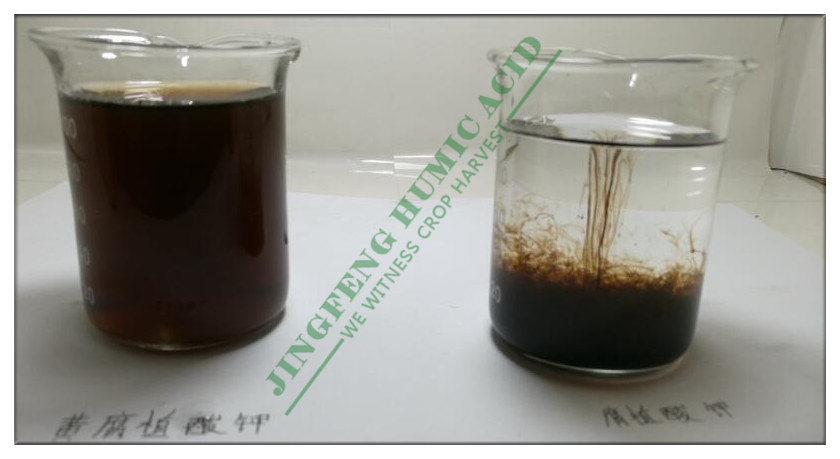 To explain the synergistic effect of humic fulvic acid powder on chemical fertilizer, firstly we should understand the reason that why it’s so important to chemical fertilizer.
To explain the synergistic effect of humic fulvic acid powder on chemical fertilizer, firstly we should understand the reason that why it’s so important to chemical fertilizer.
Why shall we pay attention on humic fulvic acid fertilizer application?

With the rapid development of Chinese chemical industry, the production and application of chemical fertilizers have been increasing. Increasing application of chemical fertilizers has undoubtedly played an important role in the development of agricultural production.
However, with the increase of fertilizer application, the cost of fertilizer application increases and the utilization rate of fertilizer decreases. Currently, utilization rate of nitrogen fertilizer in China is 30-50%. The utilization rate of phosphate fertilizer is 10-20%. The utilization rate of potash fertilizer is 50-70%.
There are many ways to improve the utilization rate of chemical fertilizer. How to improve the utilization rate of fertilizer has become a very important research topic all over the world. Currently, the most effective achievement is to use biological active additives to activate humic fulvic acid powder.
Enhance its chemical and biological activities such as chemical synthesis, adsorption, chelation and microbial reproduction to effectively improve the utilization rate of chemical fertilizer.
Synergistic effect of humic fulvic acid powder on chemical fertilizer
1. Reduce nitrogen volatilization loss

Represented by urea and ammonium bicarbonate fertilizer, volatile, general utilization rate is low, farmers is generally accepted that its “critical and fierce, short,” after mixed with humic fulvic acid powder mixture, can improve the utilization rate of absorption of 20 ~ 40% (ammonium bicarbonate release of nitrogen absorbed by crops more than 20 days, after mixed with humic acid can be up to more than 60 days), farmers considered to be “slow, steady, long”.
2. Effect of humic fulvic acid powder on soil available nitrogen
Humic fulvic acid powder has various effects on the potential nitrogen in soil. The stimulation effect of HA increases the microbial spread in soil, leading to the acceleration of organic nitrogen mineralization. HA has a higher base exchange capacity, which can reduce the volatilization loss of nitrogen and increase the content of available nitrogen in soil.
3. Effect of humic fulvic acid powder on phosphate fertilizer
 Study of effects of humic fulvic acid powder on the phosphate fertilizer has been many years abroad. China has also conducted the research, the results showed that don’t add humic acid, phosphorus in the soil vertical movement distance of 3 ~ 4 cm, adding HA can be increased to 6 ~ 8 cm, nearly double, help crop root absorption HA and has the obvious effect on the decomposition of phosphate rock, and for the protection of available p and reduce soil available p and fixed on crop root absorption of phosphorus, the use of phosphate fertilizer absorption rate has very high value.
Study of effects of humic fulvic acid powder on the phosphate fertilizer has been many years abroad. China has also conducted the research, the results showed that don’t add humic acid, phosphorus in the soil vertical movement distance of 3 ~ 4 cm, adding HA can be increased to 6 ~ 8 cm, nearly double, help crop root absorption HA and has the obvious effect on the decomposition of phosphate rock, and for the protection of available p and reduce soil available p and fixed on crop root absorption of phosphorus, the use of phosphate fertilizer absorption rate has very high value.
4. Effect of humic fulvic acid powder on potassium fertilizer
Effect of humic acid on k mainly displays in: the acidic functional groups of humate potassium ion, can absorb and store Potassium ions in sandy soil and Prevent loss in sand soil and leaching strong soil with water, and can prevent cohesive soil potassium fixation, for potassium silicate, erosion on potassium feldspar minerals, can increase the release of the slow decomposition, so as to improve the content of soil available potassium.
5. The synergistic effect of micronutrients fertilizer
Crop growth. In addition to nitrogen, phosphorus, potassium three elements, but also need calcium, magnesium, boron, manganese, copper, zinc, molybdenum and other medium, trace elements. They are a variety of enzymes in the body of crops, to promote the growth and development of crops, improve disease resistance, increase yield and improve quality have a very important impact.
Sometimes it is not the lack of trace elements in the soil, but the amount of available parts that can be absorbed by plants is too low.The application of humic fulvic acid powder can have chelating reaction with refractory trace elements to produce humic acid trace elements chelates with good solubility and easy to be absorbed by crops, which is conducive to the absorption of roots or leaves, and can promote the transfer of absorbed trace elements from roots to the ground, which is not available in inorganic trace element fertilizers.





